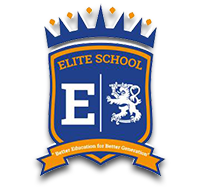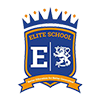Individuals and societies
I. Course description and aims
The MYP individuals and societies subject group incorporates disciplines traditionally studied under humanities and social sciences. This subject group encourages learners to respect and understand the world around them, and equips them with the necessary skills to inquire into historical, geographical, political, social, economic, and cultural factors that affect individuals, societies and environments.
The study of individuals and societies helps students to appreciate critically the diversity of human culture, attitudes and beliefs. Courses in this subject group are important for helping students to recognize that both content and methodology can be debatable and controversial, and for practising the tolerance of uncertainty.
The IB’s approach to this subject area includes a strong focus on inquiry and investigation. Students collect, describe and analyse data; test hypotheses; and learn how to interpret increasingly complex information, including original source material. This focus on real-world examples, research and analysis is an essential aspect of the subject group.
The aims of MYP individuals and societies are to encourage and enable students to:
- appreciate human and environmental commonalities and diversity
- understand the interactions and interdependence of individuals, societies and the environment
- understand how both environmental and human systems operate and evolve
- identify and develop concern for the well-being of human communities and the natural environment
- act as responsible citizens of local and global communities
- develop inquiry skills that lead towards conceptual understandings of the relationships between individuals, societies and the environments in which they live.
II. Curriculum overview
For MYP individuals and societies, schools develop courses in integrated humanities, history, economics, geography, philosophy, sociology /anthropology, business management, psychology, and world religions.
The MYP promotes inquiry in these subjects by developing conceptual understanding within global contexts.
Key concepts such as change, global interactions, time, place and space, and systemsbroadly frame the MYP curriculum.
Related concepts promote deeper learning grounded in specific disciplines. Examples of related concepts in MYP individual and societies include causality, globalization, cultureand sustainability.
Students explore key and related concepts through MYP Global Contexts.
- Identities and relationships
- Orientation in space and time
- Personal and cultural expression
- Scientific and technical innovation
- Globalization and sustainability
- Fairness and development
The MYP curriculum framework offers schools flexibility to determine engaging, relevant, challenging and significant content that meets local and national curriculum requirements. This inquiry-based curriculum explores factual, conceptual and debatable questions in the study of individuals and societies.
The MYP requires at least 50 hours of teaching time for each subject area in each year of the programme. For students participating in MYP eAssessment, the IB recommends 70 hours of guided learning each year in MYP years 4 and 5
III. Assessment Criteria
Each individuals and societies objective corresponds to one of four equally weighted assessment criteria. Each criterion has eight possible achievement levels (1–8), divided into four bands with unique descriptors that teachers use to make judgments about students’ work.
Criterion A: Knowing and understanding
Students develop factual and conceptual knowledge about individuals and societies.
Criterion B: Investigating
Students develop systematic research skills and processes associated with disciplines in the humanities and social sciences. Students develop successful strategies for investigating independently and in collaboration with others.
Criterion C: Communicating
Students develop skills to organize, document and communicate their learning using a variety of media and presentation formats.
Criterion D: Thinking critically
Students use critical-thinking skills to develop and apply their understanding of individuals and societies and the process of investigation

